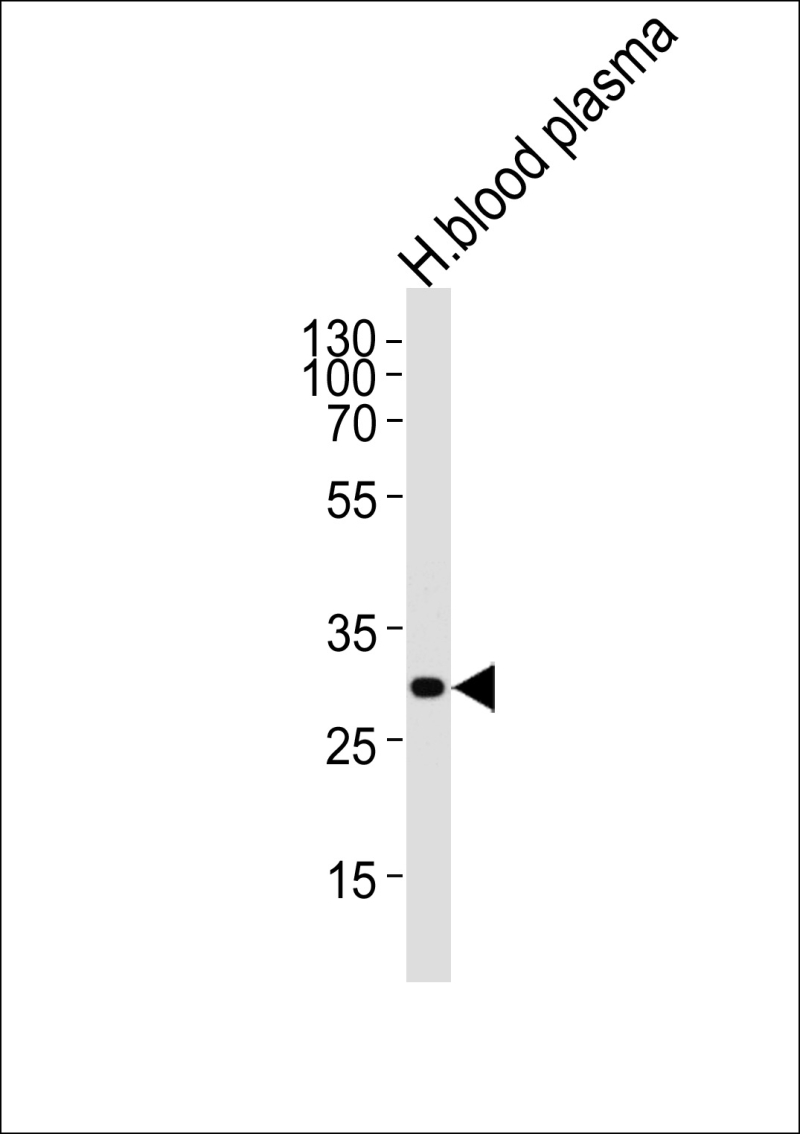
| WB | 1/1000 | Human,Mouse,Rat |
| IF | 咨询技术 | Human,Mouse,Rat |
| IHC | 咨询技术 | Human,Mouse,Rat |
| ICC | 技术咨询 | Human,Mouse,Rat |
| FCM | 咨询技术 | Human,Mouse,Rat |
| Elisa | 咨询技术 | Human,Mouse,Rat |
| Aliases | Complement C1q subcomponent subunit A, C1QA |
| Entrez GeneID | 712 |
| WB Predicted band size | 26.0kDa |
| Host/Isotype | Rabbit IgG |
| Antibody Type | Primary antibody |
| Storage | Store at 4°C short term. Aliquot and store at -20°C long term. Avoid freeze/thaw cycles. |
| Species Reactivity | Human |
| Immunogen | This C1QA antibody is generated from a rabbit immunized with a KLH conjugated synthetic peptide between 89-103 amino acids from the Central region of human C1QA. |
+ +
以下是关于C1QA抗体的3篇参考文献及其摘要概括:
---
1. **文献名称**:*Structural and Functional Anatomy of the Globular Domain of Complement Protein C1q*
**作者**:Kishore U. et al. (2004)
**摘要**:该研究解析了C1q蛋白(包括C1QA亚基)的晶体结构,揭示了其与免疫复合物结合的机制,并讨论了C1q在补体经典途径激活中的关键作用,为开发靶向C1QA的抗体提供了结构基础。
2. **文献名称**:*The Classical Complement Cascade Mediates CNS Synapse Elimination*
**作者**:Stevens B. et al. (2007)
**摘要**:研究发现C1QA抗体可特异性标记小胶质细胞中的C1q蛋白,证实补体系统通过C1QA介导中枢神经系统突触修剪,与神经退行性疾病(如阿尔茨海默病)的病理过程相关。
3. **文献名称**:*C1q and Autoimmunity: The Role of Complement in the Pathogenesis of Systemic Lupus Erythematosus*
**作者**:Botto M., Walport M.J. (2002)
**摘要**:文章综述了C1q缺陷导致系统性红斑狼疮(SLE)的机制,指出C1QA抗体在患者中的异常表达可能参与自身抗原的清除障碍,为SLE的诊断和治疗提供了潜在靶点。
---
(注:若需更多文献或扩展内容,可进一步补充。)
C1QA antibodies target the A-chain of complement component C1q, a key protein in the classical complement pathway. C1q, a hexameric molecule composed of A, B, and C polypeptide chains, acts as a pattern recognition molecule that binds to immune complexes, apoptotic cells, and pathogens, initiating complement activation and immune clearance. In autoimmune contexts, anti-C1QA antibodies are strongly associated with systemic lupus erythematosus (SLE), particularly lupus nephritis. These autoantibodies predominantly recognize the collagen-like region of C1q, interfering with its normal function and promoting complement consumption, tissue inflammation, and organ damage.
Clinically, elevated anti-C1QA levels correlate with disease activity in SLE and may serve as biomarkers for renal involvement. They are also detected in other conditions like rheumatoid arthritis and hypocomplementemic urticarial vasculitis, though with lower specificity. Research suggests these antibodies contribute to pathogenesis by forming immune complexes that deposit in tissues, triggering local complement activation and inflammatory responses. Detection methods include ELISA and multiplex immunoassays, aiding in diagnosis and monitoring. Therapeutic strategies targeting C1q or its antibodies are under investigation, aiming to modulate complement-mediated damage in autoimmune diseases.
×